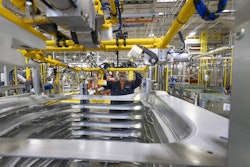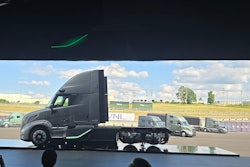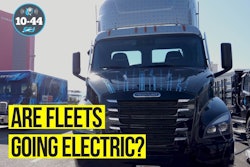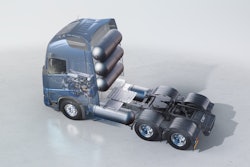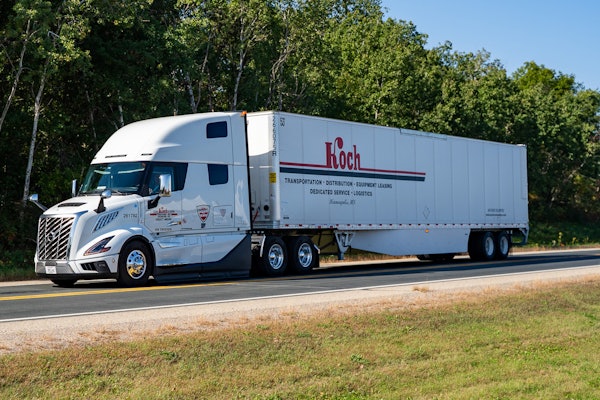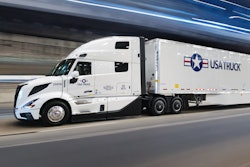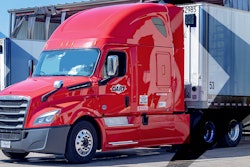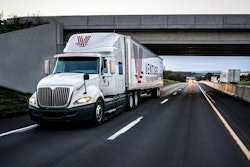This might be unpopular (I think the kids call it a hot take), but shippers in general don't care about a trucking fleet's emissions.
Of all the things a shipper has to worry about – procurement, production, end-to-end logistics, labor... everything that is basically not transportation – the emissions of their transportation partner, a company they don't own or have a financial stake in, isn't even on their radar screen.
J.B. Hunt in 2022 launched Clean Transport, a program that would allow its customers to acquire carbon offset credits equivalent to the emissions created by their shipments. Working with credible third-party organizations, J.B. Hunt would provide program participants with data showing the amount of carbon offsets needed to achieve a carbon neutral shipment and obtain carbon credits supporting the project selected by the customer.
The short version: J.B. Hunt would tell the shipper how many carbon credits it needed to buy in order to offset the emissions of their shipments over a given period. Carbon offset projects include reforestation, forest management, regenerative agriculture and clean power generation.
Fast forward two years and J.B. Hunt President Shelley Simpson revealed at ACT Expo in Las Vegas in May that the program has exactly zero customers, adding that their shipper partners are often surprised about carbon intensity relative of the cost of providing solutions.
Going green is expensive. Unless you're in the regulatory crosshairs, very few companies are willing to pay for it up front.
For two weeks in June, CCJ polled readers of our website, asking if a shipper had ever even asked about their fleet's environmental goals, or the use of zero emissions trucks. The answer was overwhelmingly "No." A whopping 64% said they'd never been asked, compared to just 19% that had been asked. Another 18% didn't know.
Yes, it's trendy for major global electronic manufacturer XYZ to publicly declare its goal for reduced emissions. It's even noble. But it's not within the whirlwind of day-to-day stuff they have to deal with in the transportation of its goods. Nor is it on the list of things they want to pay for. That $1 trillion green transportation transformation? Shippers want no part of financing it.
There are numerous green initiatives that eventually pay for themselves on the shipper side. LEED manufacturing, for example. That is a fairly complex and expensive endeavor. LEED-certified manufacturing facilities are designed and operated to consume less water, use less energy, use fewer natural resources and aim to reduce the overall impact site development has on the environment. But that investment comes back in the form of savings through reduced utility costs and the enhanced value of the building itself. The company will eventually get that money back. It might take a long time, but it will come back.
Money spent on carbon offsets, or taking a rate hike on the chin for the sake of air quality, is money gone forever and it's leaving in multiples; on every mile and every shipment. That's why it's not a major priority right now for shippers. Not my trucks, not my emissions is the new not my circus, not my monkeys.
If an all-electric fleet quotes a company $4 per mile, but a fossil fuel carrier quotes them $3 per mile, who do you think is getting the lane? Sure, shippers care about green transportation, as long as it doesn't cost more. Are brokers going to offer different rates: one for ICE transport and one for zero emissions? Of course not. Shippers have spent the better part of a year pushing rates down because they had leverage, and that's not ground they're going to surrender solely over green trucking.
Have you ever done a fantasy sports draft where you have a spending limit, say $10, and you have to pick five players from a pool of $5 players, $4 players, $3, $2 and $1 players? If you go heavy on elite and expensive players, more than half your team will be the $1 players and that's a no-win proposition unless your entire league makes the same mistake. You have to figure out a way to balance the $10 and maximize its value.
In freight transportation, service quality and zero emissions are both $5 players. If shippers pick them both, they don't have anything left to round out the team. No fantasy dollars for rate flexibility, or wiggle room in the contract when business is ebbing and flowing, so to speak. Shippers lose all their leverage in that scenario.
This is a business transaction. Carriers provide a service. If your service is good enough, very little else matters.
I love Chick-fil-a, a company that takes a lot of heat for its conservative Christian views. But I don't go to Chick-fil-a because I agree with their world view. I give them my money because their chicken sandwiches and lemonade are amazing. Similarly, Bud Light blew up its entire business with a marketing campaign that didn't align with the world view held by people who bought a lot of their beer, but the quality and taste of the beer itself didn't change. The idea that I have to think like you in order to do business with you is completely foreign to me. If you voted for Trump or Biden (or whomever), but you offer a great service I need at a great price, I'm probably a potential customer.
In a survey conducted by Shell Fleet Solutions in conjunction with the National Association of Fleet Administrators, interest in sustainability and EVs is high. Almost 65% of respondents (fleet owners, operators, managers and drivers) agree or strongly agree that building a more sustainable fleet or reaching fleet sustainability goals is a priority or top concern for 2024. Over 56% agree or strongly agree that investing in initial or additional EVs is a priority this year.
Shippers are concerned that their things to the end user and when things get there, but how they get there to a far lesser extent. It's a pretty widely held opinion that Greenhouse Gas 2027 trucks are going to cost about $20,000 more (they're probably also going to use a lot more DEF). It's a fact that there's about a 4X up-charge on battery electric trucks. If shippers are concerned about the role they play in transportation's carbon footprint – and it's a big part – they're going to have to come to the table come budget time and RFP season. History suggests they won't.



